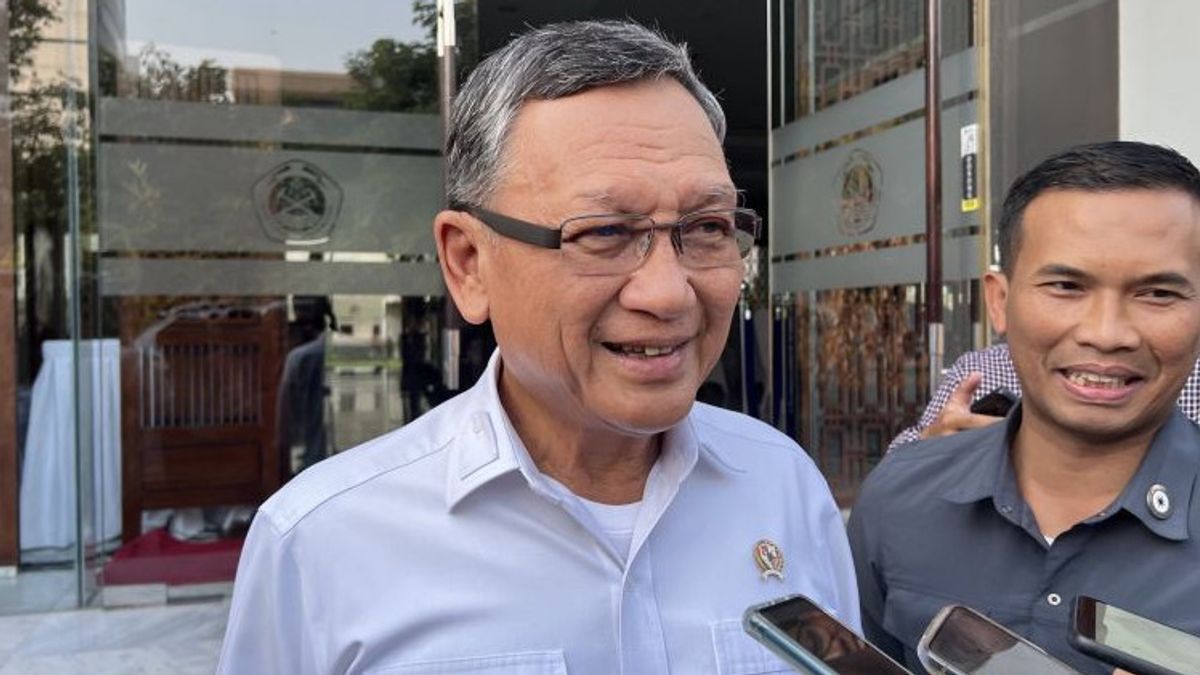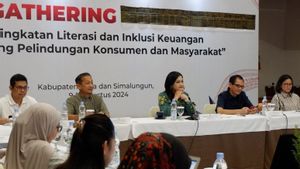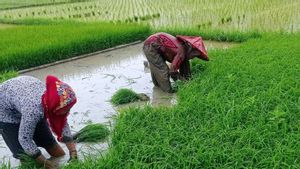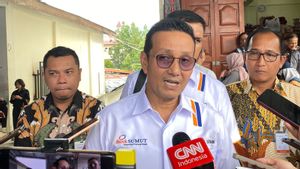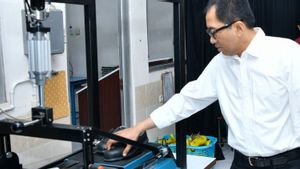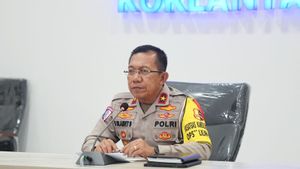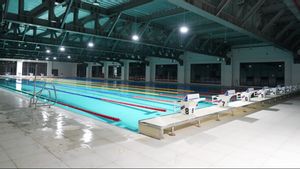JAKARTA - The Ministry of Energy and Mineral Resources (ESDM) has issued Minister of Energy and Mineral Resources Regulation Number 11 of 2024 concerning the Use of Domestic Products (TKDN) for the Development of Electricity Infrastructure.
This rule was issued to accelerate the development of electricity infrastructure while still prioritizing the use of domestic products and effective starting July 31, 2024.
Minister of Energy and Mineral Resources Arifin Tasrif revealed that the implementation of the new regulation is expected to be a solution to the problem of the EBT-based electricity infrastructure project, especially the issue of funding from abroad.
"So far, many PLTS project packages that investors have brought are offered cheaply, but they are one package. If it's jammed, so far, because there are TKDN regulations, they are stagnant. Because if you use TKDN, it's expensive. Now there are rules that foreign funding with it is permissible, a lot of funding from abroad," said Arifin, Saturday, August 10.
Pasal 2 dan 3 beleid ini menyebutkan bahwa setiap pembangunan infrastruktur ketenagalistrikan baik pembangun (pelangkit listrik yang berasal dari sumber energi terbarukan dan tidak terbarukan pendukungnya seperti jaringan transmisi, jaringan distribusi, dan subdu induk perlu diatur nilai minimum TKDN-nya.
This obligation applies to every construction of Electricity Infrastructure carried out by state institutions, ministries, non-ministerial government agencies, other government agencies, and regional work units in the procurement of Goods and Services if the source of financing comes from the state revenue and expenditure budget, regional income and expenditure budgets, including loans or grants from within the country or abroad.
This obligation also applies to state-owned enterprises, other state-owned legal entities, regional-owned enterprises, and private business entities in the procurement of Goods and Services whose financing comes from the state revenue and expenditure budget or the regional revenue and expenditure budget or work is carried out through a cooperation pattern between the central government and/or local governments with business entities as well as in its implementation to seek state-controlled resources.
SEE ALSO:
Article 6 states that the implementation of the procurement of Goods and/or Services in the Electricity Infrastructure Development Project is required to use the book of appreciation for Domestic Products which contains at least:
Categorized lists of items are required, maximized, and empowered;
list of service providers categorized as prioritizing, maximizing, and empowering and empowering
list of the capabilities of the Goods and/or service providers.
Regarding the provisions, the amount of TKDN is specifically regulated in Chapter III articles 8.9, and 10. Article 8 states, Domestic Products for the development of Electricity Infrastructure are determined based on the amount of domestic components in each Goods and/or Services shown with the TKDN value of Goods, TKDN Jasa and TKDN combined Goods and Services) which are further regulated in the legislation in the field of industry.
The Minister of Energy and Mineral Resources has set and evaluated periodically at least 1 (one) time in 3 (three) years or at any time if necessary related to the minimum limit of the combined TKDN value of Goods and Services within the scope of the Electricity Infrastructure Development Project based on a comparison between the overall price of domestic components for Goods plus the overall price of domestic components for Services for the overall price of components for Goods and Services.
In the context of assessing TKDN to determine the scope of the Electricity Infrastructure Development Project, Goods and Services Users can pre-assessment TKDN carried out by independent verification institutions during the planning stage of the Electricity Infrastructure Development Project.
Furthermore, sanctions and awards are regulated in Chapter IV articles 12, 13 and 14. Goods and Services users are subject to administrative sanctions if they do not meet the minimum limit of the combined TKDN value of Goods and Services in the form of administrative sanctions, written warnings, temporary suspension, administrative fines; and/or revocation of the business license for the provision of electricity for the public interest.
On the other hand, Users of Goods and Services can be rewarded if they meet the minimum limit of the combined TKDN value of Goods and Services as stipulated in the applicable regulations. Awards can be in the form of certificates of appreciation, announcements in the mass media; and/or other awards.
Awards were given by the Director General of EBTKE for EBT-based Electricity Infrastructure and the Director General of Electricity for Non-EBT Electricity Infrastructure.
It is also regulated in this regulation that the function of guidance and supervision is that the Minister for the implementation of the use of Domestic Products in the Electricity Infrastructure Development Project. Guidance and supervision will be carried out by the Director General of EBTKE and the Director General of Electricity.
The Director General of EBTKE carried out guidance and supervision on the implementation of the use of Domestic Products in the EBT-based Electricity Infrastructure Development Project and the Director General of Electricity carried out guidance and supervision of the implementation of the use of Domestic Products in the Non-EBT Electricity Infrastructure Development Project.
In other provisions, it is also stipulated that the relaxation provisions provided until June 30, 2025, provided that the electricity infrastructure development project in the form of a Solar Power Plant (PLTS) where the electric power purchase agreement is signed no later than December 31, 2024 and is planned to operate commercially no later than June 30, 2026.
The English, Chinese, Japanese, Arabic, and French versions are automatically generated by the AI. So there may still be inaccuracies in translating, please always see Indonesian as our main language. (system supported by DigitalSiber.id)
